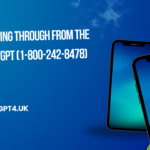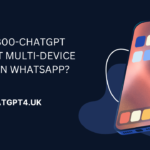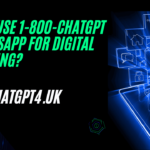What Sets GlasgowGPT Apart in the Field of AI Language Technology? AI language technology has witnessed significant advancements in recent years, revolutionizing various industries and transforming the way humans interact with machines. One of the notable innovations in this domain is GlasgowGPT, a state-of-the-art language model developed by researchers at the University of Glasgow.
GlasgowGPT has gained recognition for its exceptional capabilities and unique features, setting it apart in the field of AI language technology. This article explores the key factors that distinguish GlasgowGPT and highlight its contributions to the advancement of natural language processing (NLP) and artificial intelligence (AI).
Training Methodology:
The training methodology employed by GlasgowGPT is a fundamental aspect that sets it apart from other language models. GlasgowGPT utilizes a combination of unsupervised learning and transfers learning techniques to train the model.
The unsupervised learning phase involves training the model on a large corpus of text data, allowing it to learn the underlying patterns and structures of language. Subsequently, transfer learning is applied to fine-tune the model on specific tasks, enabling it to perform exceptionally well in various language-related applications.
Large-Scale Pretraining:
GlasgowGPT benefits from large-scale pretraining, where it is exposed to a vast amount of diverse text data to develop a comprehensive understanding of language. The model is trained on a massive dataset comprising billions of sentences, allowing it to capture a wide range of linguistic features and nuances.
This extensive pretraining empowers GlasgowGPT to generate coherent and contextually relevant responses, making it a valuable tool for tasks such as text completion, summarization, and conversation.
Multilingual Competence:
Another notable aspect that distinguishes GlasgowGPT is its multilingual competence. The model has been trained on a diverse collection of text data from multiple languages, enabling it to understand and generate content in various languages.
This multilingual capability is crucial in a globalized world where cross-lingual communication and understanding play a significant role. GlasgowGPT’s proficiency in multiple languages opens up new possibilities for applications such as translation, language tutoring, and cross-cultural communication.
Ethical Considerations:
The team behind GlasgowGPT recognizes the importance of ethical considerations in AI language technology. They have implemented measures to mitigate biases and ensure fairness in the model’s responses.
GlasgowGPT undergoes regular evaluations and audits to identify and address any potential biases or controversial outputs. The model aims to promote inclusivity, respect cultural diversity, and adhere to ethical standards, making it a responsible and reliable AI language tool.
Also Read: When will ChatGPT History be Restored?
Robustness and Accuracy:
GlasgowGPT demonstrates remarkable robustness and accuracy in its language generation capabilities. The model produces coherent and contextually appropriate responses, leveraging its extensive training on diverse text data.
GlasgowGPT has shown impressive performance in various benchmark tests and competitions, surpassing previous state-of-the-art models in terms of accuracy and fluency. Its ability to generate high-quality text makes it an invaluable tool for content creation, virtual assistants, and automated customer support systems.
Open-Source Nature:
The developers of GlasgowGPT embrace the open-source philosophy, allowing the model to be freely accessible to the research community and developers worldwide. This open-source nature fosters collaboration and encourages innovation, as researchers can build upon GlasgowGPT’s architecture and improve its capabilities.
The availability of GlasgowGPT as an open-source tool promotes transparency and facilitates the development of AI applications that benefit society at large.
Continued Research and Development:
The team behind GlasgowGPT is actively engaged in ongoing research and development to enhance the model’s performance and expand its capabilities further. They consistently explore new techniques and methodologies to address the limitations and challenges in AI language technology.
GlasgowGPT benefits from the collective expertise and contributions of a diverse research community, enabling it to remain at the forefront of advancements in NLP and AI.
Conclusion:
GlasgowGPT has emerged as a distinguished AI language model, offering a range of unique features that set it apart in the field of AI language technology. Its training methodology, large-scale pretraining, multilingual competence, ethical considerations, robustness, and open-source nature contribute to its exceptional capabilities.
As the developers continue to advance their research and development efforts, GlasgowGPT is likely to play a pivotal role in shaping the future of AI language technology and driving innovation across various domains.
FAQs
How does GlasgowGPT differ from other language models?
GlasgowGPT stands out due to its unique training methodology, which combines unsupervised learning and transfer learning techniques. It undergoes large-scale pretraining on diverse text data, making it proficient in multiple languages. Furthermore, GlasgowGPT prioritizes ethical considerations, demonstrating robustness and accuracy in its language generation capabilities.
What can GlasgowGPT be used for?
GlasgowGPT has a wide range of applications in the field of AI language technology. It can be utilized for tasks such as text completion, summarization, translation, language tutoring, content creation, virtual assistants, and automated customer support systems.
Is GlasgowGPT biased in its responses?
The developers of GlasgowGPT recognize the importance of ethical considerations and have implemented measures to mitigate biases. Regular evaluations and audits are conducted to identify and address any potential biases or controversial outputs. The aim is to promote inclusivity, respect cultural diversity, and adhere to ethical standards.
Is Glasgow-GPT accurate in its language generation?
Yes, Glasgow-GPT has demonstrated impressive accuracy and fluency in its language generation capabilities. It has outperformed previous state-of-the-art models in various benchmark tests and competitions. Its extensive training on diverse text data contributes to its ability to generate high-quality and contextually appropriate responses.
Is Glasgow-GPT freely accessible?
Yes, Glasgow-GPT follows an open-source approach, making it freely accessible to the research community and developers worldwide. This open-source nature encourages collaboration, innovation, and transparency in the field of AI language technology.
What is the future of Glasgow-GPT?
The team behind Glasgow-GPT is actively engaged in ongoing research and development to enhance the model’s performance and expand its capabilities. As advancements in NLP and AI continue to evolve, Glasgow-GPT is expected to play a crucial role in shaping the future of AI language technology and driving innovation in various domains.
Can Glasgow-GPT be integrated into existing AI systems?
Yes, Glasgow-GPT can be integrated into existing AI systems and applications. Its open-source nature and comprehensive documentation facilitate its integration, allowing developers to leverage its language generation capabilities to enhance their own AI systems.
How can researchers contribute to the development of Glasgow-GPT?
Researchers can contribute to the development of Glasgow-GPT by actively engaging with the open-source community. They can provide feedback, propose improvements, and collaborate on research projects related to the model. The collective expertise and contributions of the research community help advance Glasgow-GPT and drive progress in the field of AI language technology.
Where can I find more information about Glasgow-GPT?
For more information about Glasgow-GPT, you can visit the official website of the University of Glasgow’s research team. Additionally, the open-source documentation and resources related to Glasgow-GPT are available for reference, providing in-depth insights into its architecture, training methodology, and usage guidelines.







